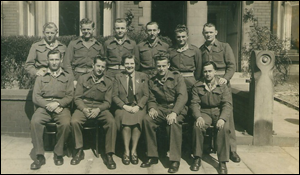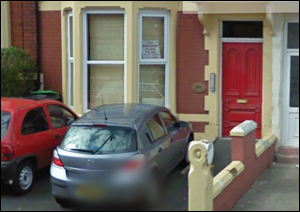Blackpool, Lancashire
The sea-side town of Blackpool became the playground for the industrial north during the Victorian Era. The Industrial Revolution and the 'Age of Steam' brought prosperity through improvements to working conditions and increased leisure time. The wealth of the town was reflected in the grandeur of the lavish architectural design applied to the hotels on the Golden Mile and in quieter side streets leading away from the seafront. The town had enjoyed its prime position as a holiday resort right up until the outbreak of war in 1939.
War brought a new role to the town. After Dunkirk, Blackpool became the depot for Polish aircrew prior to being despatched to stations or depots for training or operations. New arrivals were sent to the Goodwood Hotel in Hornby Road for debriefing and registration prior to unit assignment and despatch. (The Lansdowne Hotel became the Polish Airforce HQ). In the aftermath of Dunkirk forces were left short of equipment and in a pretty poor shape. Britain was on invasion alert. For the young Poles, duties were regarded as tedious and quite demeaning. Young men had lied over their ages to enlist and fight. Construction of prisoner of war camps was often the closest action many saw in the early months of their war. While the Goodwood Hotel became a centre for enlistment, the White Eagle Club also in Hornby Road,became the officers club.

Goodwood Hotel, 209 Hormby Road.
Kindly donated by Martin Feledziak
